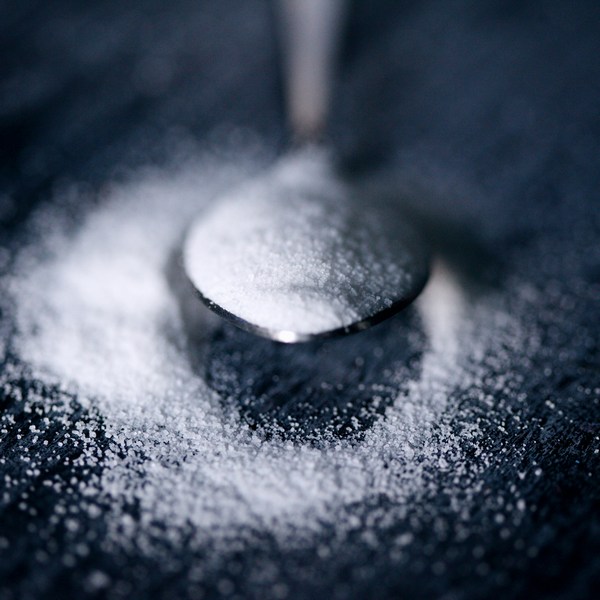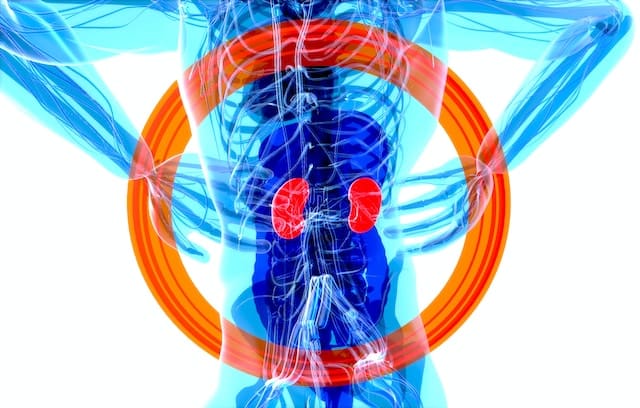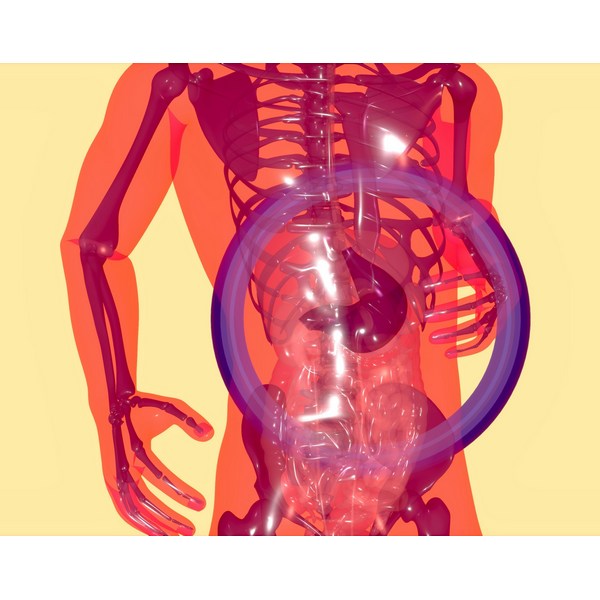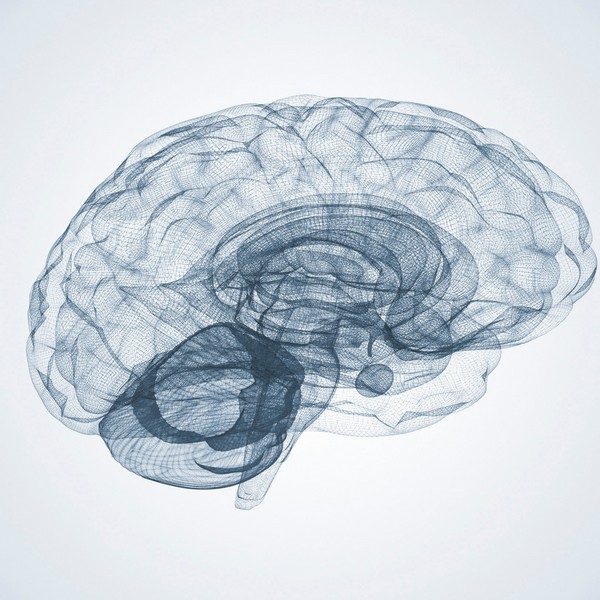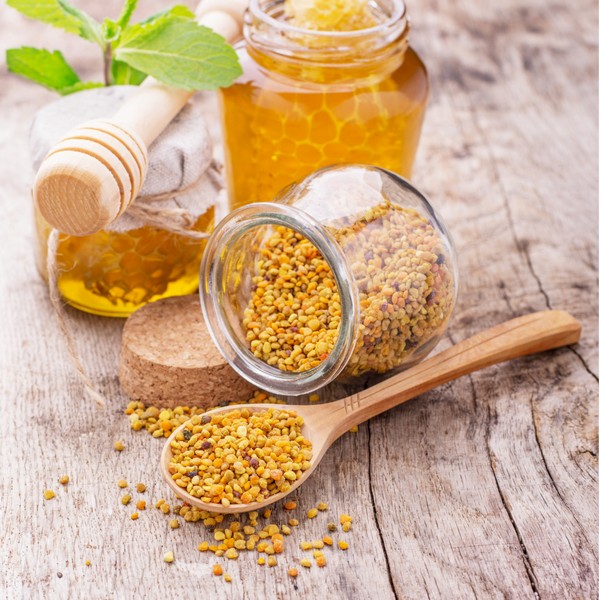Key Takeaways
- The appeal of natural remedies lies in their holistic approach, fewer side effects, and environmental sustainability.
- Specific natural remedies can effectively alleviate common ailments like headaches, digestive issues, and allergies.
- It’s essential to approach natural remedies with caution, respecting their limitations and consulting healthcare professionals when necessary.
Table of Contents
Natural remedies for common ailments have never been more relevant. Many individuals are turning away from conventional medicine, seeking alternatives that align more closely with nature and holistic well-being. This shift highlights a growing desire to address health concerns with remedies that are not only effective but also harmonize with the body’s natural processes.
The Appeal of Natural Remedies
The allure of natural remedies has surged, capturing the attention of those looking to maintain their health without relying solely on conventional medicine.
This growing trend isn’t just a fad; it’s rooted in a deeper understanding and appreciation for the body’s ability to heal itself, given the right natural support. People are increasingly drawn to these methods for a variety of compelling reasons.
- Sustainability: Natural remedies often utilize herbs, plants, and other resources that can be cultivated sustainably, reducing the environmental impact associated with some pharmaceuticals.
- Accessibility: Many natural remedies can be prepared at home with ingredients that are readily available, making them an accessible option for many.
- Fewer Side Effects: While not entirely devoid of side effects, natural remedies typically have fewer and less severe side effects compared to conventional medications, making them a preferred choice for those looking to minimize potential adverse effects.
As interest in natural health solutions continues to grow, it’s clear that the appeal of natural remedies lies not just in their effectiveness, but also in their ability to promote a more harmonious relationship between our health practices and the natural world.
Natural Remedies for Digestive Issues

Digestive problems, ranging from occasional bloating and indigestion to more chronic conditions like irritable bowel syndrome (IBS) and acid reflux, affect a significant portion of the population.
With the side effects of long-term medication use prompting concerns, natural remedies have emerged as a gentle yet effective approach to enhancing digestive health.
Overview of Common Digestive Issues
Common digestive issues include bloating, gas, indigestion, constipation, diarrhea, and acid reflux.
These can result from a variety of factors, including diet, stress, lack of exercise, and the overuse of antibiotics, which can disrupt the gut’s microbial balance.
Natural Solutions and Dietary Adjustments for Digestive Health
| Ginger | A renowned digestive aid, ginger can alleviate nausea, bloating, and gas. It stimulates digestion by speeding up the movement of food from the stomach into the small intestine |
| Peppermint Oil | Studies suggest that peppermint oil can relieve symptoms of IBS, including bloating and bowel spasms, by relaxing the muscles of the digestive tract |
| Probiotics | Consuming probiotic-rich foods like yogurt, kefir, and sauerkraut can help restore the natural balance of your gut flora, improving digestion and immunity |
| Mindful Eating | Eating slowly and mindfully can reduce digestive discomfort by preventing overeating and allowing for better digestion |
| Stay Hydrated | Adequate water and mineral intake is crucial for digesting food and preventing constipation |
| Healthy Fat | Adjusting the quantity of healthy fats you eat can be used to modulate gut motility and regularity |
Making these simple adjustments to your diet and lifestyle can significantly improve your digestive health and overall well-being.
However, it’s important to consult with a healthcare provider for persistent or severe symptoms.
Natural Remedies for Allergies

Allergies manifest when the immune system reacts to a foreign substance, such as pollen, pet dander, or certain foods, resulting in symptoms ranging from sneezing and itchiness to more severe reactions.
As conventional allergy medications can cause side effects like drowsiness, many are turning to natural remedies for relief.
Understanding Allergies and Their Triggers
Allergies are caused by the immune system’s overreaction to harmless substances, treating them as threats and causing symptoms as it tries to fend off these perceived invaders.
Common triggers include environmental factors like pollen and dust, foods such as nuts and dairy, and chemical irritants in products.
Enhancing Your Immune System Naturally
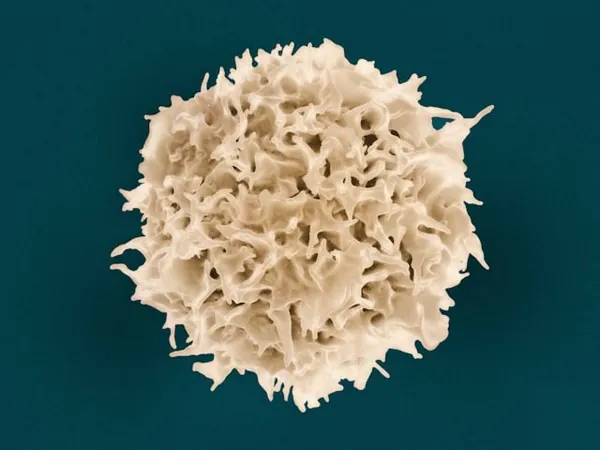
A robust immune system is your body’s best defense against illness and infection. With the growing interest in natural health strategies, many are seeking ways to naturally bolster their immune function.
Enhancing your immune system naturally involves a combination of dietary, lifestyle, and herbal approaches.
Importance of a Strong Immune System
The immune system is a complex network of cells, tissues, and organs that work together to defend the body against pathogens, including viruses, bacteria, and fungi.
A strong immune system can not only prevent illness but also ensure a quicker recovery when you do get sick.
Lifestyle Changes to Boost Immunity
- Adequate Sleep: Quality sleep is crucial for immune function. Aim for 7-9 hours per night to help your body repair and regenerate.
- Regular Physical Activity: Moderate exercise can stimulate your immune system, improving surveillance for pathogens.
- Stress Management: Chronic stress can weaken the immune system. Techniques like meditation, yoga, and deep-breathing exercises can help manage stress levels.
- Bioavailable Nutrient Dense Food: Fatty Red Meat and organs, Seafood, and Eggs are packed with immune-boosting nutrients.
- Hydration: Clean water with electrolytes and trace minerals helps countless bodily functions including eliminating toxins.
- Herbal Supplements: Echinacea, Elderberry, and Andrographis have been traditionally used to support immune health.
Herbal and Homeopathic Remedies for Allergy Relief

| Apple Cider Vinegar | Diluted apple cider vinegar is touted for many health benefits, including the potential to reduce mucous production and cleanse the lymphatic system, helping alleviate allergy symptoms |
| Quercetin | A natural bioflavonoid that can block histamine release, quercetin is found in foods like apples, berries, and onions and is believed to help reduce allergy symptoms. |
| Nettle Leaf | Nettle leaf, taken as a tea or supplement, can act as a natural antihistamine, helping to alleviate sneezing and itching. |
| Saline Nasal Irrigation | Using a saline solution to irrigate the nasal passages can help relieve nasal congestion and clear out allergens from the nasal lining. |
| Local Honey | Consuming local honey is thought to help desensitize the body to the pollen in the area, potentially reducing allergic reactions over time. |
Natural Remedies for Headaches

Headaches, one of the most common health complaints, can range from mild discomfort to debilitating pain.
They can disrupt daily life, but not everyone wants to reach for a pill bottle for relief.
Fortunately, natural remedies offer effective alternatives for many types of headaches, including tension headaches, migraines, and cluster headaches.
Common Types of Headaches and Their Causes
- Tension Headaches: Often linked to stress, tension, and muscle strain, these are the most common type of headaches. Symptoms include a constant ache that affects both sides of the head, often accompanied by tightness in the neck or scalp.
- Migraines: Characterized by intense, throbbing pain usually on one side of the head, migraines can also cause nausea, light sensitivity, and visual disturbances. Triggers include hormonal changes, certain foods, stress, and environmental factors.
- Cluster Headaches: Known for their extreme pain, cluster headaches occur in cyclical patterns or clusters. The pain is piercing and typically concentrated around one eye. The cause is not well understood but is thought to relate to the body’s biological clock.
Detailed Natural Remedies for Relieving Headaches

| Peppermint Oil | Applying peppermint oil to the temples has been shown to relieve tension headaches. The menthol in peppermint oil helps relax muscles and ease pain. |
| Magnesium | Magnesium deficiency is linked to headaches and migraines. Taking magnesium supplements can reduce the frequency of migraine attacks. |
| Hydration | Dehydration can trigger headaches. Simply drinking water with minerals and staying well-hydrated can prevent or alleviate headache pain. Carbonated water or club soda is a good alternative for individuals who find drinking regular water difficult |
| Ginger Tea | Ginger has anti-inflammatory properties that can soothe migraines. Drinking ginger tea at the onset of migraine symptoms may help reduce their severity. |
| Yoga and Relaxation Techniques | Stress is a common trigger for all types of headaches. Practices such as yoga, meditation, and deep-breathing exercises can reduce stress and the frequency of headaches. |
While these natural remedies can be effective for many, it’s important to recognize that results can vary from person to person. For chronic or severe headaches, consulting a healthcare professional is advised.
Headaches, one of the most common physical complaints, can range from mild annoyances to debilitating pain.
While over-the-counter medications are a go-to solution for many, an increasing number of people are seeking natural alternatives to relieve their discomfort.
“There is considerable evidence that magnesium supplementation is useful for the management or prophylaxis of migraine headaches“
Shin, H.-J., Na, H.-S. and Do, S.-H., 2020. Magnesium and Pain. Nutrients, [online] 12(8), p.2184. https://doi.org/10.3390/nu12082184.
Considerations with Natural Remedies
While natural remedies offer an appealing alternative to conventional medicine, it’s crucial to approach them with an informed and cautious mindset.
When to See a Doctor
It’s important to consult with a healthcare provider if:
- Symptoms persist or worsen despite the use of natural remedies.
- You experience severe or sudden symptoms.
- You have underlying health conditions or are pregnant, as some natural remedies may not be safe.
The Importance of Proper Diagnosis
Self-diagnosing and treating can sometimes lead to overlooking serious conditions. A proper diagnosis from a healthcare professional is vital to ensure that the natural remedy is appropriate and won’t interfere with any existing treatments or conditions.
Limitations of Natural Remedies
While many natural remedies are effective for mild to moderate conditions, they may not be sufficient for severe illnesses or emergencies.
Safe Use of Natural Remedies
- Always research thoroughly before trying a new remedy.
- Start with small doses to see how your body reacts.
- Purchase products from reputable sources to ensure quality and safety.
If you’re inspired to further embrace a natural and holistic approach to health, exploring the world of herbalism might be your next exciting step. Delving deeper into herbal remedies and their traditional uses can expand your toolkit for natural wellness and self-care.
Frequently Asked Questions
1. Can natural remedies completely replace conventional medicine? While natural remedies can be effective for managing and alleviating symptoms of common ailments, they should not be viewed as complete replacements for conventional medicine, especially in cases of severe or chronic conditions. It’s important to consult healthcare professionals to understand the best approach for your specific health needs.
2. How can I start incorporating natural remedies into my healthcare routine? Begin by researching natural remedies that can address specific symptoms or conditions you’re experiencing. Consider starting with simple, well-documented remedies, such as using peppermint oil for headaches or ginger for digestive issues. Always start with small doses to see how your body reacts.
3. Are there any natural remedies for sleep disorders? While the article didn’t specifically cover sleep disorders, natural remedies like valerian root, chamomile tea, and lavender essential oil are popular for their calming and sleep-inducing effects. Incorporating these into your nighttime routine may help improve sleep quality.
4. Can lifestyle changes impact the effectiveness of natural remedies? Yes, lifestyle factors such as diet, exercise, stress levels, and sleep quality can significantly impact the effectiveness of natural remedies. A holistic approach that includes these remedies, along with healthy lifestyle choices, can provide the best results.
5. How do I know if a natural remedy is safe for me to use? Safety can depend on various factors, including your current health status, any medications you’re taking, and the specific remedy in question. It’s essential to do thorough research, consult with a healthcare provider, and possibly start with a lower dose to test your body’s reaction. Additionally, sourcing remedies from reputable suppliers can ensure higher quality and safety.
Research
Abascal, K. and Yarnell, E., 2009. Clinical uses of Zingiber officinale (ginger). Alternative and Complimentary Therapies, 15(5), pp.231-237.
https://www.researchgate.net/publication/244889890_Clinical_Uses_of_Zingiber_officinale_Ginger
Aliasgharpour M, Rahnamaye Farzami M. Trace Elements in Human Nutrition: A Review. Int J Med Invest 2013; 2 (3) URL: http://intjmi.com/article-1-141-en.html
Angelova, M., Asenova, S., Nedkova, V., Koleva-Kolarova, R. (2011) Copper in the human organism, Trakia Journal of Sciences, 9(1): 88-98.
https://www.researchgate.net/publication/284772858_Copper_in_the_human_organism
Balakrishnan, A., 2015. Therapeutic uses of peppermint-a review. Journal of pharmaceutical sciences and research, 7(7), p.474.
https://www.researchgate.net/publication/282177469_Therapeutic_uses_of_peppermint_-A_review
Bode, A.M. and Dong, Z., 2011. The amazing and mighty ginger. Herbal Medicine: Biomolecular and Clinical Aspects. 2nd edition.
https://www.ncbi.nlm.nih.gov/books/NBK92775/
Brandon, B., 2014. Apple Cider Vinegar for Health: 100 Amazing and Unexpected Uses for Apple Cider Vinegar. Simon and Schuster.
Castillo-Durán, C., and Cassorla, F.. "Trace Minerals in Human Growth and Development" Journal of Pediatric Endocrinology and Metabolism, vol. 12, no. 5, 1999, pp. 589-602.
https://doi.org/10.1515/JPEM.1999.12.5.589
Caspersen, L.A. and Walsh, S.A., How does apple cider vinegar get rid of a sinus infection?.
Chirumbolo, S., 2010. The role of quercetin, flavonols and flavones in modulating inflammatory cell function. Inflammation & Allergy-Drug Targets (Formerly Current Drug Targets-Inflammation & Allergy)(Discontinued), 9(4), pp.263-285.
Chrubasik, J.E., Roufogalis, B.D., Wagner, H. and Chrubasik, S.A., 2007. A comprehensive review on nettle effect and efficacy profiles, Part I: Herba urticae. Phytomedicine, 14(6), pp.423-435.
Fahey, R.L., 2017. Health benefits of apple cider vinegar and other common vinegars: A review. Integrative Medicine Alert, 20(6).
Fardet, A. (2016). Minimally processed foods are more satiating and less hyperglycemic than ultra-processed foods: a preliminary study with 98 ready-to-eat foods. Food & Function, 7(5), 2338-2346.
https://pubmed.ncbi.nlm.nih.gov/27125637/
Fiolet, T., Srour, B., Sellem, L., Kesse-Guyot, E., Allès, B., Méjean, C., ... & Touvier, M. (2018). Consumption of ultra-processed foods and cancer risk: results from NutriNet-Santé prospective cohort. BMJ, 360, k322. Retrieved from https://www.bmj.com/content/360/bmj.k322.full
Food and Nutrition Board, Institute of Medicine, National Academy of Sciences. (2001) Dietary Reference Intakes for Vitamin A, Vitamin K, Arsenic, Boron, Chromium, Copper, Iodine, Iron, Manganese, Molybdenum, Nickel, Silicon, Vanadium, and Zinc, Washington, DC: National Academy Press.
Freeland-Graves, J. H., Sanjeevi, N., & Lee, J. J. (2015). Global perspectives on trace element requirements. Journal of Trace Elements in Medicine and Biology, 31, 135-141.
https://doi.org/10.1016/j.jtemb.2014.04.006
Gaffney-Stomberg, E. The Impact of Trace Minerals on Bone Metabolism. Biol Trace Elem Res 188, 26–34 (2019).
https://doi.org/10.1007/s12011-018-1583-8
Godswill, A. G., Somtochukwu, I. V., Ikechukwu, A. O., & Kate, E. C. (2020). Health Benefits of Micronutrients (Vitamins and Minerals) and their Associated Deficiency Diseases: A Systematic Review. International Journal of Food Sciences, 3(1), 1–32.
https://doi.org/10.47604/ijf.1024
Grotto D, Zied E. The Standard American Diet and its relationship to the health status of Americans. Nutr Clin Pract. 2010 Dec;25(6):603-12.
https://pubmed.ncbi.nlm.nih.gov/21139124/
Hambidge, M. (2003). Biomarkers of Trace Mineral Intake and Status. The Journal of Nutrition, 133(3), 948S-955S. https://doi.org/10.1093/jn/133.3.948S
Hall, K. D., Ayuketah, A., Brychta, R., Cai, H., Cassimatis, T., Chen, K. Y., ... & Walter, M. (2019). Ultra-processed diets cause excess calorie intake and weight gain: An inpatient randomized controlled trial of ad libitum food intake. Cell Metabolism, 30(1), 67-77.e3. Retrieved from
https://www.cell.com/cell-metabolism/fulltext/S1550-4131(19)30248-7
Harrison, F., Furner-Pardoe, J. and Connelly, E., 2022. An assessment of the evidence for antibacterial activity of stinging nettle (Urtica dioica) extracts. Access Microbiology, 4(3), p.000336.
Juul, F., Hemmingsson, E., Trends in consumption of ultra-processed foods and obesity in Sweden between 1960 and 2010, Public Health Nutrition, 20(12), 2177-2185. Retrieved from
https://doi.org/10.1017/s1368980015000506
Khodaie, L. and Sadeghpoor, O., 2015. Ginger from ancient times to the new outlook. Jundishapur journal of natural pharmaceutical products, 10(1).
Kodama, H., Fujisawa, C. (2009) Copper metabolism and inherited copper transport disorders: Molecular mechanisms, screening, and treatment, Metallomics, 1(1): 42-52.
Kulka, M., 2009. The potential of natural products as effective treatments for allergic inflammation: implications for allergic rhinitis. Current topics in medicinal chemistry, 9(17), pp.1611-1624.
Loolaie, M., Moasefi, N., Rasouli, H. and Adibi, H., 2017. Peppermint and its functionality: A review. Arch Clin Microbiol, 8(4), p.54.
Maier, J.A., Pickering, G., Giacomoni, E., Cazzaniga, A. and Pellegrino, P., 2020. Headaches and Magnesium: Mechanisms, Bioavailability, Therapeutic Efficacy and Potential Advantage of Magnesium Pidolate. Nutrients, [online] 12(9), p.2660. https://doi.org/10.3390/nu12092660.
McKay, D.L. and Blumberg, J.B., 2006. A review of the bioactivity and potential health benefits of peppermint tea (Mentha piperita L.). Phytotherapy Research: An International
Journal Devoted to Pharmacological and Toxicological Evaluation of Natural Product Derivatives, 20(8), pp.619-633.
Mehrbod, P., Hudy, D., Shyntum, D., Markowski, J., Łos, M.J. and Ghavami, S., 2020. Quercetin as a natural therapeutic candidate for the treatment of influenza virus. Biomolecules, 11(1), p.10.
Osredkar, J., Sustar, N. (2011) Copper and zinc, biological role and significance of copper/zinc imbalance, Journal of Clinical Toxicology, S3: 1-18.
Pakrashi, S.C. and Pakrashi, A., 2003. Ginger: A versatile healing herb. Vedams eBooks (P) Ltd.
Patricia Bragg, N.D., Bragg, P.C. and ND, P.D., 2003. Apple Cider Vinegar Miracle Health System. Health Science Publications, Inc..
Polerà, N., Badolato, M., Perri, F., Carullo, G. and Aiello, F., 2019. Quercetin and its natural sources in wound healing management. Current Medicinal Chemistry, 26(31), pp.5825-5848.
Riehemann, K., Behnke, B. and Schulze-Osthoff, K., 1999. Plant extracts from stinging nettle (Urtica dioica), an antirheumatic remedy, inhibit the proinflammatory transcription factor NF-κB. FEBS letters, 442(1), pp.89-94.
Roger, M. (2011) The Minerals You Need, USA: Safe Goods Publishing, p 21.
Saltman, P. D., Strause, L. G. (1993) The role of trace minerals in osteoporosis., Journal of the American College of Nutrition, 12:4, 384-389, DOI: 10.1080/07315724.1993.10718327
https://pubmed.ncbi.nlm.nih.gov/8409100/
Seelig, M.S., Berger, A.R. and Spielholz, N., 1975. Latent tetany and anxiety, marginal magnesium deficit, and normocalcemia. Dis Nerv Syst, 36(8), pp.461-5.
Sheu JR, Hsiao G, Shen MY, Lee YM, Yen MH. Antithrombotic effects of magnesium sulfate in in vivo experiments. Int J Hematol. 2003 May;77(4):414-9. doi: 10.1007/BF02982655. PMID: 12774935.
Shin, H.-J., Na, H.-S. and Do, S.-H., 2020. Magnesium and Pain. Nutrients, [online] 12(8), p.2184.
https://doi.org/10.3390/nu12082184.
Simental-Mendía LE, et al. Effect of magnesium supplementation on insulin resistance in humans: a systematic review. Nutrition. 2017;38:54-60. doi:10.1016/j.nut.2017.01.004
Song Y, et al. Dietary magnesium intake and risk of incident hypertension among middle-aged and older US women in a 10-year follow-up study. Am J Cardiol. 2005;96(12):1675-1681. doi:10.1016/j.amjcard.2005.08.034
Song Y, et al. Dietary magnesium intake in relation to plasma insulin levels and risk of type 2 diabetes in women. Diabetes Care. 2004;27(1):59-65. doi:10.2337/diacare.27.1.59
Swaminathan, R. (2003). Magnesium Metabolism and its Disorders. The Clinical Biochemist Reviews, 24(2), 47-66.
https://www.ncbi.nlm.nih.gov/pmc/articles/PMC1855626/
Tanaka, T., Higa, S., Hirano, T., Kotani, M., Matsumoto, M., Fujita, A. and Kawase, I., 2003. Flavonoids as potential anti-allergic substances. Current Medicinal Chemistry-Anti-Inflammatory & Anti-Allergy Agents, 2(1), pp.57-65.
Tako, E. (2019). Dietary Trace Minerals. Nutrients, 11(11), 2823.
https://doi.org/10.3390/nu11112823
Tsugutoshi. (2004) Copper deficiency and the clinical practice, Japan Medical Association Journal, 47: 365-370.
Underwood, E. J. (1981) The incidence of trace element deficiency diseases Phil. Trans. R. Soc. Lond. B2943–8 http://doi.org/10.1098/rstb.1981.0085
Uauy, R., Olivares, M., Gonzalez, M. (1988) Essentiality of copper in humans, Journal of Clinical Nutrition, 67(5): 952-959.
Veronese N, et al. Dietary magnesium intake and fracture risk: data from a large prospective study. Br J Nutr. 2017;117(11):1570-1576. doi:10.1017/S000711451700147X
Veronese N, et al. Magnesium and health outcomes: an umbrella review of systematic reviews and meta-analyses of observational and intervention studies. Eur J Nutr. 2019;58(1):1-12. doi:10.1007/s00394-018-1742-0
Vural, Z., Avery, A., Kalogiros, D. I., Coneyworth, L. J., & Welham, S. J. (2020). Trace Mineral Intake and Deficiencies in Older Adults Living in the Community and Institutions: A Systematic Review. Nutrients, 12(4), 1072. https://doi.org/10.3390/nu12041072
Yablon, L.A. and Mauskop, A., 2018. Magnesium in headache.
https://europepmc.org/article/nbk/nbk507271
Natural Remedies for Common Ailments: From Headaches to Allergies
Key Takeaways The appeal of natural remedies lies in their holistic approach, fewer side effects, and environmental sustainability. Specific natural remedies can effectively alleviate common…
Gout: Symptoms & Natural Treatment
Managing Menopause Symptoms – A Guide to Navigate this Life Stage
Exercise RoutineManaging Stress Improving Sleep HabitsSeeking Emotional Support:Adjusting Your DietConsidering Alternative TherapiesFrequently Asked Questions Menopause is a natural stage in a woman’s life marking the…
Osteoarthritis Symptoms & Home Remedies
Key Takeaways Lifestyle adjustments and alternative therapies contribute to overall symptom management. Low-impact exercises and physical activity help maintain mobility and reduce pain. Heat and…
Adrenal Cocktail: Recipe and Benefits
Key Takeaways The adrenal cocktail supports adrenal health and maintains energy levels. Combines potassium, sodium, and vitamin C for effective adrenal nourishment. Consumed in the…
Do Artificial Sweeteners Cause Weight Gain? The Surprising Truth
Key Takeaways – Artificial sweeteners may disrupt gut microbiome balance, impacting digestion and immune health….
What You Need to Know About Salt and Your Health
Table of ContentsThe Health Benefits of Unrefined Sea SaltElectrolyte BalanceMineral ContentImproved HydrationBoosted Energy LevelsImmune SupportImproved…
How To Optimize Your Weight Loss Efforts
1. Get Your Beauty Sleep for Optimal Weight Loss2. Natural Solutions for Weight Loss3. Stress…
11 Amazing Tips to Improve Your Sleep Quality
Limit Power NapsModulate Sunlight ExposurePay Attention to CaffeineSchedule BedtimePlan Ahead for DinnertimeMelatonin: Not what you…
7 Simple Tips for Lowering Blood Pressure Naturally
Maintaining healthy blood pressure levels is essential for overall well-being, as high blood pressure can…
Proteolytic Enzymes and Heart Health: What the Research Shows
Your heart works tirelessly to pump blood throughout your body, delivering essential nutrients and oxygen…
Is Eating Sugar Really That Bad For Your Health?
Should You Really Be Concerned? In short, YES! Thank you, that’s all folks, and do…
Natural Treatment for Irritable Bowel Syndrome (IBS): Effective Remedies Explored
Understanding IBSSymptoms of IBSRole of Diet in IBSNatural Remedies for IBSSupplements for IBSRole of Probiotics…
Medium Chain Triglycerides (MCTs): Uncovering 5 Health Benefits
This potent, natural source of energy has gained considerable attention in recent years for its…
7 Remedies for Kidney Stones: A Comprehensive Guide
Key Takeaways Staying well-hydrated and adopting a balanced diet can help prevent kidney stones. Knowing…
Berberine Has 11 More Incredible Benefits Than You Thought
Berberine is a compound found in several plants that has been used for centuries in…






